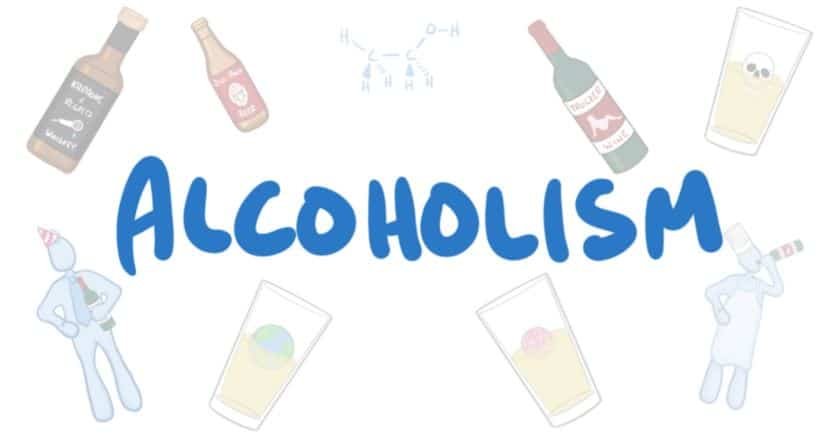Health
3 Common Causes of Alcoholism

There are no two opinions that substance abuse is detrimental to the health of your body and brain. Alcohol abuse, also called alcoholism or alcohol use disorder, is one of the prevalent forms of substance abuse. Drinking alcohol gives positive signals to the pleasure centers in the brain. With regular alcohol consumption, your brains start associating it with positive feelings such as euphoria, comfort, and loss of inhibitions. This happens because alcohol triggers the production of chemicals in the brain associated with your reward system. This leads your brain to believe that more alcohol consumption will lead to more frequent positive feelings; hence, your body starts craving for more to relive the same sensations.
However, the problem is that as time passes, you need more alcohol to experience the same level of euphoria that you used to have with a lesser quantity, leading to alcoholism. As you drink more, the pleasure decreases because your body develops tolerance against it. So you may start displaying withdrawal symptoms when you don’t consume more alcohol.
Researchers believe that countless risk factors make one more prone to developing alcoholism than others. The interaction of these risk factors varies depending on the person; therefore, you might see that some people develop alcohol abuse while others don’t. The risk factors can be internal or external; an explanation of these factors is available later in the article.
The menace of alcoholism has become so rampant that special treatment centers are working to cure addicts and bring them back to their lives. While some people can recover from alcohol addiction on their own, for most people, it is impossible. For them, there is alcohol rehab at dedicated recovery treatment centers helping struggling alcohol users become sober again. If someone near you is fighting alcohol addiction, contacting these rehabs is a prudent choice.
[lwptoc]
Causes of alcohol addiction
Causes of alcohol can be broadly categorized into external and internal factors. The external factors include the family, environment, age, education, peer pressure, religion, and social status. In contrast, internal factors include psychological conditions, genetic makeup, drinking history, and personal preference, to name a few. Below is more detail about the causes of alcoholism.
-
Genetic makeup
You are more prone to alcohol addiction if your parents deal with it. The genetic reasons for alcohol abuse are far from straightforward and involve more complexities. A person’s genetic makeup also impinges on many aspects of alcohol abuse, including the amount of time the body will take to breakdown alcoholism, the length of hangovers, feeling developed in a person, the level of risk-averse tendencies in a person, and finally, the probability of someone discontinuing the alcohol use.
Scientists believe there are a number of genes that collaborate to develop alcoholism in a person. So far, 51 genes have been found to impact alcoholism in a person. The presence of these genes increases your chances of alcohol abuse if you develop a drinking habit. That’s why biological children of parents with alcohol abuse have more chances of developing the addiction even when raised in a non-alcoholic environment.
-
Family influence
Apart from genetics, the family can also significantly influence your tendencies to develop alcoholism. The menace of alcohol does not necessarily have to travel through your family tree to make you crave alcohol or develop alcoholism. Being around family members and relatives drinking alcohol regularly can also develop your interest in it. You might be intrigued to taste it and later develop a strong inclination towards it. The use of alcohol by your family might give it a seal of approval, glamorizing its frequent use, so you might also do it to become part of the clan.
-
Psychological causes of alcoholism
Certain psychological conditions can also impact one’s chances of developing alcohol abuse in a person. For instance, people dealing with depression, problematic situations, and social anxiety are more prone to finding refuse in alcohol use. Similarly, more than 40% of bipolar sufferers are alcoholics or increasingly depend on alcohol to escape their situation.
Many people dealing with psychological illnesses find a gateway in alcohol use to cope with their situation. This is why people fighting schizophrenia claim that alcohol consumption silence the voices in their head, or depression patients seem to have elevated mood by drinking alcohol. Unfortunately, they are often those who have no idea about the negative impact of these medications.
Often, people dealing with mental health illnesses revert to alcohol because they are shamed to ask for help. Therefore, they prefer to eliminate their uneasiness with the temporary use of alcohol. They might think that asking for help might garner criticism, judgment, or even worse, mockery of others. As a result of alcoholism, they develop further mental and physical issues, though they are completely oblivious.
Conclusion
Alcohol addiction can impact your body, brain, and even your relationship with the family. You may develop mood swings, try to stay away from the family, or neglect your responsibilities. You might use alcohol as a refuge from your family issues and life problems; it will not end up well for you. Therefore, whatever the cause of alcoholism, the user needs immediate help from their family, peers, and professionals to revert to their life when there is still hope, as severe abuse is a death sentence for internal organs.
Read more: Ways to Overcome the Addiction of Substance Abuse Naturally
-

 Celebrity4 weeks ago
Celebrity4 weeks agoIs YNW Melly Out Of Jail? What Is The YNW Melly Release Date, Career, Early Life, And More
-

 Sports4 weeks ago
Sports4 weeks agoMore Than Just a Game: How College Sports Can Shape Your Future
-

 Tech3 weeks ago
Tech3 weeks agoAI Software: Transforming the Future of Technology
-

 Tech3 weeks ago
Tech3 weeks agoAll About Com. Dti. Folder Launcher: Features, Benefits, Tips, And More













